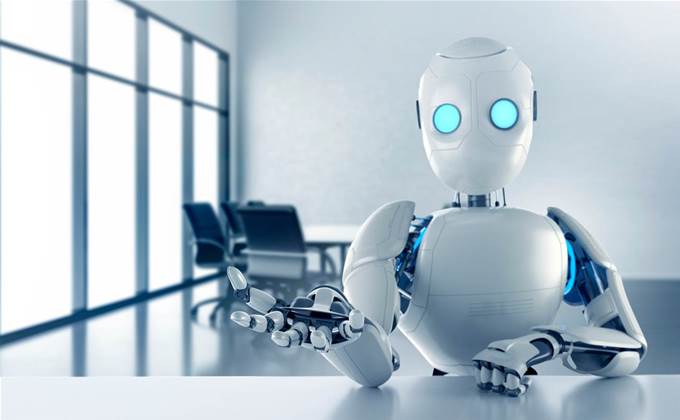Tomorrow's AI helpers, today

That might all be well and good, but honestly, we all really want general conversational AI agents.
When we plug one into a humanoid robot we'll finally live in a world containing all those awesome robots we've seen in movies and comic books.
Surely such a system can't be too far off? After all, Watson had to wield very generalist knowledge to win at Jeopardy. Not only did it have to understand the question (which is in the form of an answer), it had to do the reasoning about a response, put it in the appropriate terms (which is in the form of a question), and do it all inside three seconds to be competitive enough to beat its human opponents.
Watson's Rob High says IBM researchers recently combined deep learning techniques with acoustic and language models to reach what he calls a 'record milestone in automatic speech recognition'.
It brought the word error rate down to 5.5 percent accuracy (and if someone says 'I absolutely went to town' and you say 'really, did you drive or catch the train?' and blush as everyone laughs, you'll know human communication is far from 100 percent accurate).
James Canton thinks ubiquitous general conversational AI will be with us in two to five years, or sooner.
Carpenter thinks we'll be conversing with machines as if they're intelligent within 10 years.
He says an approach Cleverbot takes (in a quite human-like gesture) is to accept that it can't be perfect – to say inaccurate, humorous or crazy-seeming things in parts of the 'infinite conversational space' and to learn what people really want to talk about.
"A huge amount of data can be gathered that not only means it constantly improves now, while entertaining people, but will be used all the more with computing power and machine learning techniques in the future," he says.
There's just one stumbling block, as Carpenter sees it.
"The goalposts are constantly moving. As we get used to what machines are currently capable of, we adjust our interpretation of what is really intelligent and human."
The real conversational AI
But as cool as it would be for science fiction geeks and housework, is such human-like, general knowledge conversational AI even something we should be aiming for?
"There's not a lot of value in replicating the human mind into a computer," says Rob High.
"The human brain is incredibly complex and there's still a lot of work to be done to understand fully how it works. We're not trying to replicate the human mind in cognitive computing, we're trying to figure out what humans are good at and not good at and how to fill in the gaps - how to extend human cognitive reach."
To High, that means conversational AI and the systems that underpin it need to understand what the human user intends, reason about his or her problem in a way that draws conclusions, and learn so it can improve its understanding and reasoning over time.
Tim Tuttle agrees, predicting conversational AI won't supplant human communication as much as take out some of the grunt work.
"With truly conversational AI users will be able to interact with their devices in a way that streamlines common daily tasks like placing an order at a restaurant, booking a flight or hotel, or creating a service appointment at a doctor's office."
Employment shock
You can't talk about any kind of machine learning technology today without acknowledging the potential threat to jobs, and as conversational AI gets better, it will likewise have an effect.
As Cleverbot's Rollo Carpenter says; "AI overall is certainly going to be economically transformative. Some [changes] will be enormously positive even while disrupting vested interests. We're all going to have to adjust, and the role of government will need to evolve too."
He agrees some work – like repetitive call centre customer service – will surely be taken over by AI, but says the need for human oversight and interjection into more complicated problems and queries will be around for a long time, and there might even be more of it than what's lost or replaced by conversational AI.
"When machines are able to talk naturally, genuinely understanding not only language but also needs, people will talk a lot more, whether to companies' bot representatives or virtual individuals," Carpenter says.
"Much more conversation will happen overall because it will be good or very useful conversation. Right now people avoid calling helplines because they know it'll be a nightmare."
Technology futurist James Canton believes the co-evolution of AI and humans will mean some work will be collaborative and some will be competitive, but that there are some things robots or AI can never do.
"I don't want a robotics massage or lover," he says, "but robots will replace many jobs generating income for a new autonomous economy that will benefit humanity."


.png&h=140&w=231&c=1&s=0)
_(23).jpg&h=140&w=231&c=1&s=0)
_(28).jpg&h=140&w=231&c=1&s=0)




_(26).jpg&w=100&c=1&s=0)

 iTnews Executive Retreat - Security Leaders Edition
iTnews Executive Retreat - Security Leaders Edition












_(1).jpg&h=140&w=231&c=1&s=0)



